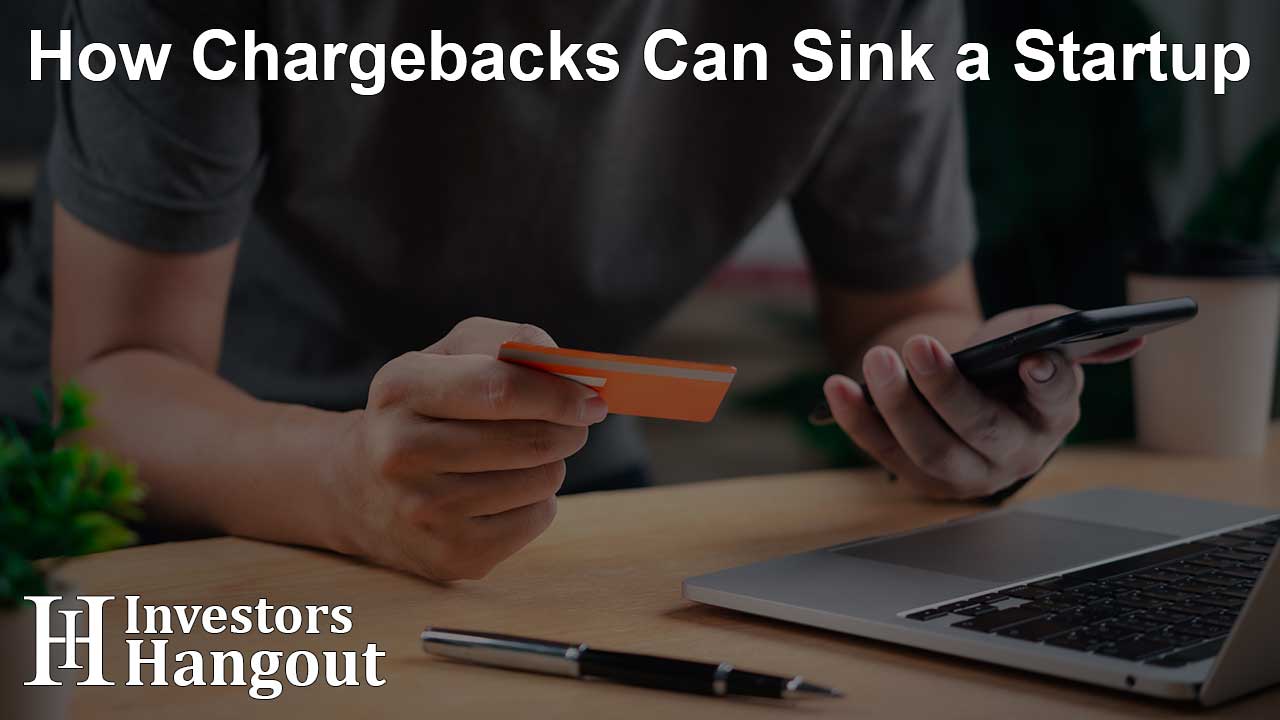Launching a startup is such an exciting move in life, but it can also put a lot of pressure on your shoulders.
You need to think about tons of stuff, from product development to customer acquisition, to investor expectations. Juggling all of that can be overwhelming indeed. It’s not comforting to hear that there are also hidden threats like chargebacks, but if you are aware of them, it can be a lifesaver in business. When a customer disputes a purchase in their bank, the funds are reversed from the merchant, typically with additional fees. Occasional chargebacks are okay, but if they are not checked regularly, they can cripple cash flow and destroy an upstart company's reputation.
For startups that are trying to stand out in a competitive market and find their own place, overlooking chargeback is a huge risk. It's like when there is a leak in the hull of a ship.
It won't sink in an hour, but it’ll sink eventually if the damage is not controlled and repaired.
Why Chargebacks Hurt Worse Than Refunds
In contrast to voluntary refunds, where you get to maintain some control, chargebacks give all decisions to the card issuer.
That difference is that there are surprise expenses that add up quickly:
-
Per dispute fees – Most chargebacks involve an administrative fee of $20 to $100 (USD), depending on the payment processor.
-
Loss of revenue – You're losing not just the product or service provided but the value of the transaction as well.
-
Reputational risk – Too many chargebacks put your merchant account in jeopardy, making it unable to process payments in the future.
-
Time and resources – Disputes steal away time gathering evidence, talking to banks, and paperwork, wasting limited startup bandwidth.
The cumulative effect of these issues means that the growth trajectory of a startup can be prevented from taking place before it even has an opportunity to grow.
Industries at Higher Risk
Some industries are more at risk than others:
|
Industry |
Common Cause |
Avg. Chargeback Ratio |
|
Subscription services |
Forgotten recurring billing |
2-3% |
|
Travel & hospitality |
Cancellations |
1.5-2% |
|
e-commerce (electronics, apparel) |
Delivery disputes, fraud |
1-2% |
|
Digital goods & gaming |
Friendly fraud |
2-4% |
|
Nutritional supplements |
Dissatisfaction with results |
2-3% |
For context, card networks usually require less than 1% chargeback ratios. Anything above that is high risk.
The Investor's Perspective
From an investment standpoint, startups with high chargeback exposure are in danger of more than just short-term revenue loss.
They’re in danger of:
-
Investor skepticism – Due diligence normally entails verifying financial health. High chargebacks raise red flags.
-
Reduced valuation – Continual payment challenges reduce projected revenue stability.
-
Difficulty raising capital – Lenders and investors are less eager to fund companies due to regulatory or payment processing challenges.
Investors fully realize that payment controversies can snowball into greater instability, limiting a firm's long-term prospects.
Solutions: Building a Defense
Chargebacks are not unavoidable.
With the right tools and practices, startups can fight chargebacks and continue momentum growth.
-
Clear billing – Proper product descriptions, clearly visible refund policies, and correct descriptors reduce misunderstandings.
-
Fraud prevention tools – AI-driven monitoring, 3D Secure verification, and velocity reviews stop fraudulent purchases from being made.
-
Customer service emphasis – Quick fix of problems is keeping customers before they decide to contact their bank.
-
Specialized merchant solutions – As a business that has high-risk merchant accounts, you can partner up with a U.S.-based payment processing provider in order to obtain access to services that would help your business, especially so if you’re in a high-risk industry (CBD, adult entertainment, i gaming, sub services, firearms, etc.). For instance, Adaptiv Payments offers high-risk merchant account solutions such as gateways, chargeback, fraud protection, ACH, virtual terminals, e-commerce integrations, etc.
Utilizing these solutions guarantees chargebacks are not a reason for worry or potential threat, but rather a manageable part of doing business.
What Startups Gain by Managing Chargebacks
When prevention is part of your plan, startups have three advantages:
-
Improved cash flow – Less amount of money tied up in disputes, and at the same time, more liquidity for operations.
-
Enhanced banking relationships – Staying below limits builds processor trust.
-
Investor confidence – Financial resilience demonstrates long-term strength.
These advancements directly determine whether an enterprise makes it through the initial, vulnerable years of expansion.
Key Takeaways for Founders
-
Monitor ratios monthly – Maintain your chargeback ratio at less than 1%.
-
Spend money on prevention upfront – Preventing disputes costs less than winning them back.
-
Leverage expert assistance – Typical processors will bail on you; high-risk providers are going to ensure you’re still in business.
Conclusion
When you are building a startup, every transaction matters.
Chargebacks are more than an inconvenience. There are financial and reputational risks that can undermine the growth of your business even before it begins. If you monitor ratios, invest in fraud tools, and collaborate with providers that are professionals in handling high-risk accounts, it can all be manageable with much lower chances of serious issues.
Managing chargebacks isn’t avoiding disputes; it’s showing customers, banks, and investors that your business is able to withstand them.
About The Author
Contact Dominic Sanders privately here. Or send an email with ATTN: Dominic Sanders as the subject to contact@investorshangout.com.
About Investors Hangout
Investors Hangout is a leading online stock forum for financial discussion and learning, offering a wide range of free tools and resources. It draws in traders of all levels, who exchange market knowledge, investigate trading tactics, and keep an eye on industry developments in real time. Featuring financial articles, stock message boards, quotes, charts, company profiles, and live news updates. Through cooperative learning and a wealth of informational resources, it helps users from novices creating their first portfolios to experts honing their techniques. Join Investors Hangout today: https://investorshangout.com/

